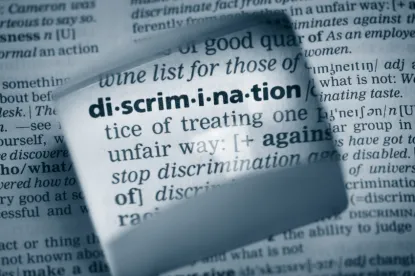In a unanimous decision in Fort Bend County, Texas v. Davis, the United States Supreme Court held that while an employee has a mandatory obligation to file a charge with the EEOC prior to bringing a discrimination suit under Title VII, such obligation is a procedural, rather than jurisdictional, requirement. The key takeaway for employers being: you must promptly raise a plaintiff’s failure to file a sufficient charge as an affirmative defense in litigation or risk losing the defense.
While the Court’s decision resolves a circuit split on the issue, it does not in fact alter the law in the majority of jurisdictions, with eight circuits having already held that failure to exhaust administrative remedies before the EEOC is a procedural, rather than a jurisdictional, requirement. Only the Fourth, Ninth and Eleventh Circuits stood in the opposite camp.
Relevant Background
Title VII, which prohibits discrimination in employment on the basis of race, color, religion, sex, and national origin, provides that an employee alleging discrimination must first file a charge with the EEOC within 180 days after the alleged unlawful employment practice occurs. (Alternatively, an employee may fulfill this obligation by filing a charge with a state or local anti-discrimination agency that has a “worksharing” agreement with the EEOC). If, following an investigation, the EEOC declines to pursue further enforcement, or in all cases by 180 days after a charge is filed, the EEOC will issue the complainant a “right-to-sue” notice, after which the complainant has 90 days to commence a lawsuit in court.
In the Fort Bend County case, the plaintiff filed suit under Title VII alleging, among other things, religious discrimination, yet she failed to include the religious discrimination claim as part of her EEOC charge (though she did note the word “religion” on an initial intake form). Years into a protracted litigation, the County moved to dismiss the religious discrimination claim, arguing for the first time that the district court lacked jurisdiction to hear the claim due to the employee’s failure to properly exhaust her administrative remedy before the EEOC.
The district court agreed and granted the County’s motion to dismiss, finding that the charge-filing requirement was jurisdictional and therefore non-waivable. On appeal, the U.S. Court of Appeals for the Fifth Circuit reversed, holding that the charge-filing requirement is instead a “prudential prerequisite” to suit subject to an affirmative defense, and the County forfeited the defense because it had waited too long to raise the objection. The County filed a petition for a writ of certiorari with the United States Supreme Court.
The Supreme Court’s Decision
The Supreme Court agreed with the Fifth Circuit and held that “prerequisites to suit like Title VII’s charge-filing instruction . . . are not [jurisdictional]; they are properly ranked among the array of claim-processing rules that must be timely raised to come into play.” The Court reiterated the important distinction between jurisdictional requirements—which may be raised by a defendant at any time during a litigation and pursuant to which courts may dismiss claims even absent a challenge by a defendant—and non-jurisdictional requirements that “seek to promote the orderly progress of litigation by requiring that the parties take certain procedural steps at certain specified times.” While procedural obligations such as Title VII’s charge-filing requirement are still mandatory in that courts must enforce the rule if properly raised, they also may be deemed waived “if the party asserting the rule waits too long to raise the point.”
That said, the Court emphasized that its holding that the charge-filing requirement is non-jurisdictional “gives plaintiffs scant incentive to skirt the instruction,” since “[a] Title VII complainant would be foolhardy consciously to take the risk that the employer would forgo a potentially dispositive defense.”
* * *
So what does this all mean for employers? As a practical matter, not all that much. An employee’s obligation to file a charge with the EEOC (or similar state/local agency) remains the same as before. However, if an employee fails to appropriately file a charge, such a failure will not act as an automatic bar to the case moving forward. Rather, the burden will be on the employer to raise the issue promptly or risk forfeiting the defense.





 />i
/>i

